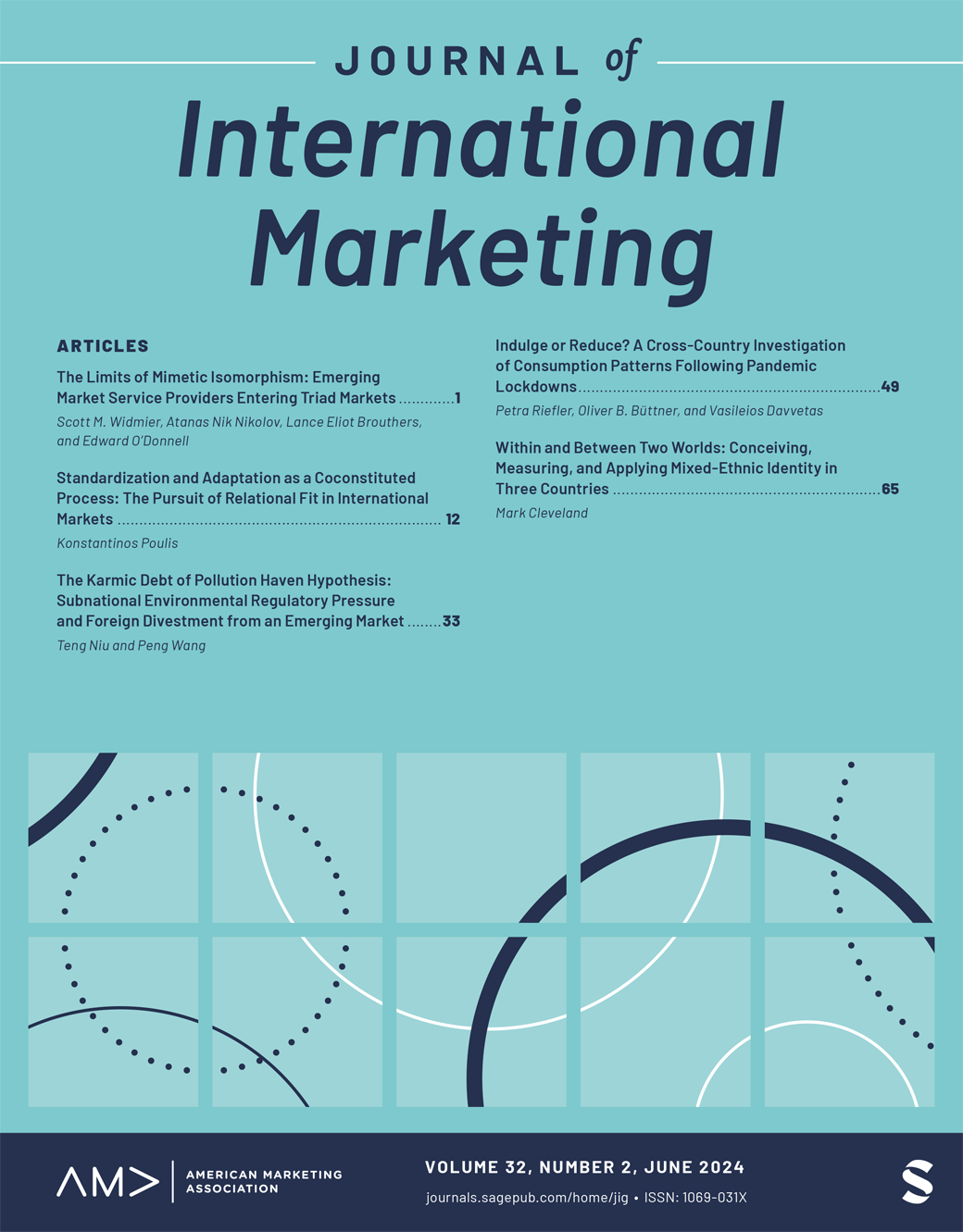是什么推动了国际特许经营中的特许权使用费费率?
IF 4.9
2区 管理学
Q1 BUSINESS
引用次数: 4
摘要
特许权使用费是一项重要的合同条款,旨在降低特许经营合作伙伴关系中的机会主义风险,其中许多是国际性的。然而,现有的研究对决定国际特许经营协议中特许权使用费水平的因素提供了有限的见解。为了解决这一差距,作者对一个模型进行了概念化和实证检验,该模型将国家特征(经济潜力、法律权利保护和文化距离)和合同特征(领土排他性和合同期限)视为特许权使用费费率的驱动因素,将产品市场概况和服务类型视为潜在的背景因素。使用一个由来自19个国家的125份特许经营商和特许经营商之间的国际特许经营合同组成的独特数据集,作者发现,经济潜力(但不是领土排他性)与更高的特许使用费费率有关,而法律权利保护、文化距离和合同期限与更低的特许使用率有关。尽管这些关系在企业对消费者和企业对企业市场中都很牢固,但与针对其财产的服务(如金融服务)相比,针对人群的服务(例如招待)对经济潜力的特许权使用费率的影响更为明显,而对法律权利保护的影响则不那么明显。这项工作扩展了探索国际特许经营合同阶段的文献,并提供了一些见解,为特许人和被特许人与此类合同设计相关的决策提供信息。本文章由计算机程序翻译,如有差异,请以英文原文为准。
What Drives Royalty Rates in International Franchising?
Royalty rates are an essential contractual provision to reduce the risk of opportunism in franchising partnerships, many of which are international. However, extant research provides limited insights into the factors that determine the level of royalty rates in international franchise agreements. To address this gap, the authors conceptualize and empirically test a model that treats country characteristics (economic potential, legal rights protection, and cultural distance) and contract characteristics (territorial exclusivity and contract duration) as drivers of royalty rates, accounting for product-market profile and service type as potential contextual factors. Using a unique data set comprising 125 international franchising contracts between franchisors and franchisees from 19 countries, the authors find that economic potential (but not territorial exclusivity) is associated with higher royalty rates, whereas legal rights protection, cultural distance, and contract duration are associated with lower royalty rates. Although these relationships are robust across business-to-consumer and business-to-business markets, the impact on royalty rates of economic potential is more pronounced, and that of legal rights protection is less pronounced, for services targeting people (e.g., hospitality) than for services targeting their possessions (e.g., financial services). This work extends the literature exploring the contracting stage of international franchising and provides insights that inform franchisors’ and franchisees’ decisions related to the design of such contracts.
求助全文
通过发布文献求助,成功后即可免费获取论文全文。
去求助
来源期刊

Journal of International Marketing
BUSINESS-
CiteScore
8.70
自引率
17.20%
发文量
28
期刊介绍:
As the globalization of markets continues at a rapid pace, business practitioners and educators alike face the challenge of staying current with the developments. Marketing managers require a source of new information and insights on international business events. International marketing educators require a forum for disseminating their thoughts and research findings. Journal of International Marketing(JIM) is an international, peer-reviewed journal dedicated to advancing international marketing practice, research, and theory. Contributions addressing any aspect of international marketing management are published each quarter.
 求助内容:
求助内容: 应助结果提醒方式:
应助结果提醒方式:


